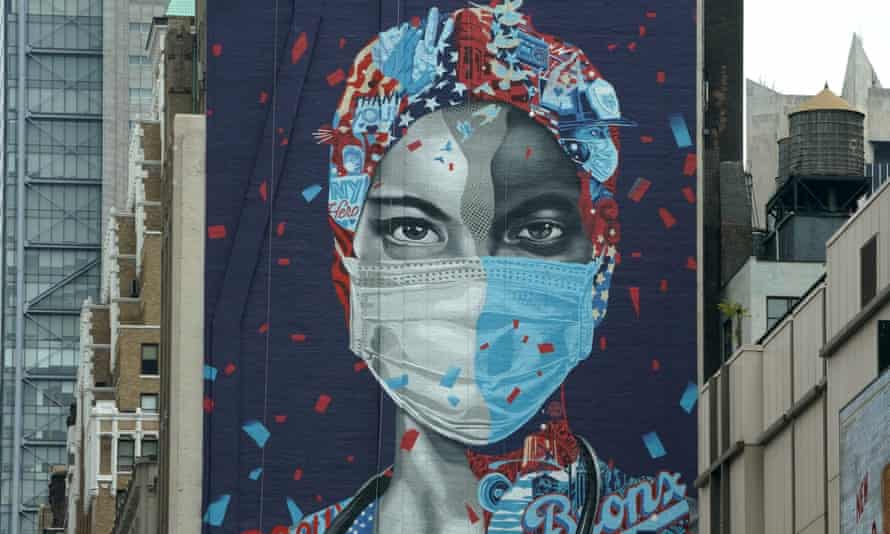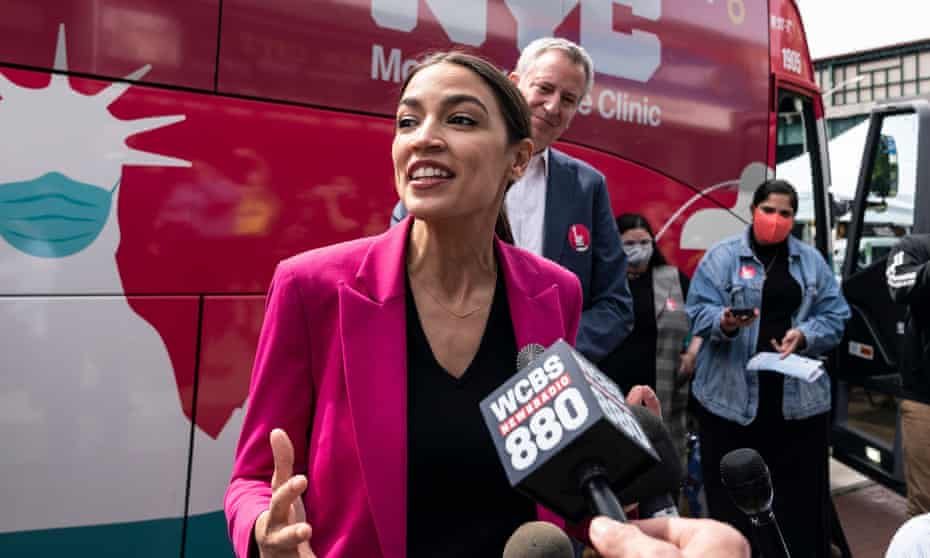Deysia Padilla’s family thought she was at work. Instead, she spent last Thursday afternoon unloading a mound of orange and pink baby socks in a sunny South Bronx laundromat – one-by one, in all their three-inch glory. She had 48 hours to consider an impossible choice: either get vaccinated or lose her job.
Padilla is one of thousands of unvaccinated New Yorkers affected by Mayor Bill de Blasio’s ultimatum last week. Not only do city employees face the reality of losing their jobs, but without a shot, they’ll even forgo unemployment payments. Some unvaccinated Bronx natives would rather pursue a life outside New York City than be forced to take the vaccine.
“I feel like my dream is being shattered by the government,” said Padilla. “I’m being taken out of my home.” The 25-year-old mother had plans to become an art teacher one day. Now, she’s considering moving to Florida with her husband and three-month-old baby.
A pandemic-induced population shift to Florida – sometimes called the city’s sixth borough – is already under way. As of March, more than 33,500 New Yorkers permanently relocated to Florida – up 32% from the same period in the previous year. Experts say people flocked south for looser Covid restrictions, affordable housing, and access to in-person schools.
Most unvaccinated Bronx residents don’t fit neatly into the anti-mask, anti-vaccine framework that has spread nationally, according to Andrew Rasmussen, associate professor of psychology at Fordham University. The Bronx is still nursing its wounds after being hit tragically hard by the deadly virus – with the highest rates of hospitalizations, deaths and unemployment in New York City.
In the Bronx, where median per capita income in 2019 was $21,778 – over three and a half times lower than in Manhattan – 70% of the population works in face-to-face or essential jobs. Even now, people wear masks – sometimes two – while walking outdoors. Many are still nervous to shake hands with people outside their family. Building custodians diligently stroll the sidewalks, spraying Clorox.
“People are wearing double-masks, being really careful, but the vaccination rates in the neighborhood are still very low,” said Rasmussen. “That suggests that there’s something else going on there.”
Still, it is not unusual to hear Bronx residents voice more concern about the vaccine than the virus it is administered to prevent.
“I worry about the virus, but more importantly, I worry about the vaccine,” said Kelven Esbenel, 24. Six weeks ago, he started work at an Amazon fulfilment center in Staten Island, only to learn that the company may start requiring vaccinations under Biden’s new mandates. Now, he said he ponders a life in Connecticut, leaving his vaccinated family members behind.
“We can’t expect that medical systems who have earned the mistrust of many marginalized groups will now be trusted because of Covid. It doesn’t work that way,” said Tiffany Green, a population health scientist and economist at the University of Wisconsin-Madison.
This mistrust almost cost Emely Berrera, 23, her stepfather’s life. She works as a cashier at a hand car wash in the Tremont section of the West Bronx, and said her stepfather nearly stopped breathing last March. When the family called a taxi to get him to the hospital, the driver warned them, “Don’t go, because they’re gonna kill you in there.”
Berrera’s stepfather stayed home, where the family treated him with purple onion tea. Luckily he recovered.
Mistrust of public institutions in the Bronx can be explained, in part, experts say, by steep barriers to medical care and a history of resource depletion after the borough’s white population dropped by 50% in the 1970s.
“There are policy prescriptions that people are expected to engage in, but there has been a transference away from marginalized and Black and brown folks in terms of resources,” said Lessie Branch, director of the Think Tank at Bronx-based Thinkubator. “As best as they can, they try to observe the policy prescriptions but without the accompanying resources to help them.”

Research shows that having a trusted medical provider is an important predictor of likelihood to get the vaccine. The Bronx has the lowest number of general practitioners per 100,000 population of any borough in the city – five times lower than in Manhattan.
“In this local community, they see their pharmacist more than they see their doctor,” said Priyank Patel, a supervising pharmacist in Crotona. Patel said he was doing his best to make up for medical inequities by quelling misinformation with a familiar face and a few empathetic conversations.
When vaccines were introduced in January, Patel said, the pharmacy’s online slots were filled within 30 minutes – but not always by locals. Most Bronx residents could not afford to stay home from work. Instead, some Manhattanites raced to the Bronx earlier this year in search of the coveted vaccine appointments.
For some, like Seth Hopper, the inoculation field trip was their first time in the borough.
“I never had been there before. It was the first location I could get when the vaccinations became available,” he said. Hopper traveled from his apartment on the Upper East Side in April to get vaccinated in Co-Op City, a massive housing cooperative in the north-east Bronx.
As some Bronx natives consider moving out-of-state to avoid the shot, community leaders question the long-term effects of vaccine mandates on community trust.
“Overusing heavy-handed mandates that threaten people’s livelihoods is seen as cruel,” said Tom Sheppard, who serves on the city’s elected Community Education Council and is co-founder of Bronx Parent Leaders Advocacy Group, in a tweet. “You may even mean well, but doing it this way erodes trust instead of building it.”
Padilla looked up from the mound of socks that day. “It’s gonna get ugly,” she said. “I’m telling you.”





